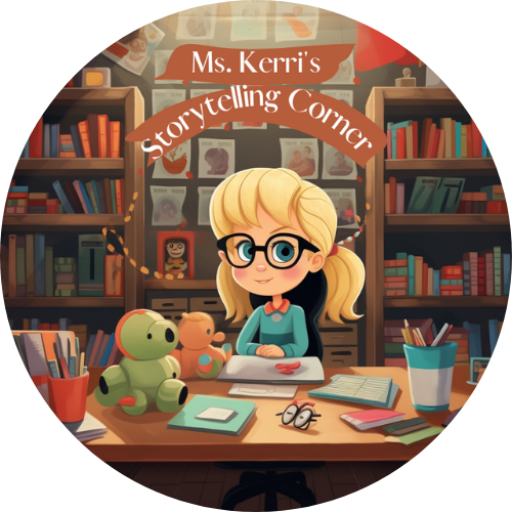Fostering social skills and imagination in young learners is crucial for their overall growth and development. Through creative and interactive activities, children can learn to connect with others, express themselves, and explore the world around them in meaningful ways. Below are seven fun and effective strategies that can help nurture these vital skills in young children.
One of my favorite memories from teaching young children is watching them dive into a pretend play activity we set up as a “grocery store.” With shopping baskets in hand and makeshift price tags on items, the children took on roles as shoppers, cashiers, and store managers.
They’d negotiate who got to restock shelves, practice counting as they “rang up” items, and even solve little disagreements over who was next in line. It was incredible to see how this simple setup helped them build social skills like cooperation, communication, and empathy—all while having so much fun. Moments like these remind me how powerful imaginative activities can be in fostering growth.

Pretend Play
Imaginative role-playing is a wonderful way to develop social skills and creativity. Whether children are playing house, pretending to be shopkeepers, or dressing up as superheroes, they practice essential social interactions like sharing, introducing themselves, and resolving conflicts. Pretend play also helps children step into others’ shoes, fostering empathy and perspective-taking.
Classroom experience: In my kindergarten classroom, pretend play corners were always abuzz with activity. Watching children negotiate roles, create imaginative scenarios, and solve pretend problems was a testament to how this activity encouraged both collaboration and creativity.
Group Games
Cooperative games like team sports, board games, or group challenges teach children the value of teamwork and communication. These activities require patience, turn-taking, and the ability to work towards a shared goal, making them ideal for fostering social bonds. By participating in group games, children learn the importance of fair play and supporting one another.
Storytelling Activities
Storytelling is a powerful tool for sparking creativity and enhancing communication. Encourage children to create their own stories, either orally or through drawings, and share them with others. Acting out scenes from favorite books also allows children to explore emotions and practice expressing their thoughts. This activity not only develops language skills but also nurtures a vivid imagination.

Emotion Recognition
Helping children identify and understand emotions is key to developing empathy and emotional intelligence. Books and movies provide a natural way to discuss characters’ feelings and motivations. Asking questions like, “How do you think this character feels?” or “What would you do in their place?” can encourage deeper conversations and build emotional awareness.
Art Projects
Collaborative art activities provide opportunities for children to work together creatively. From murals to group craft projects, these activities teach the importance of sharing materials, communicating ideas, and appreciating others’ contributions. Art projects not only ignite imagination but also build cooperative skills as children bring a collective vision to life.
Music and Movement

Music and dance are wonderful ways to encourage self-expression and social interaction. Activities like group singing, rhythm games, or choreographed dances promote listening skills and teamwork. These experiences create a sense of community and joy, while also helping children develop coordination and a love for the arts.
Nature Exploration
Exploring the outdoors through nature walks or scavenger hunts encourages curiosity, teamwork, and communication. Children can share discoveries, solve clues together, and bond over shared experiences in the natural world. These activities spark wonder and help children learn how to work as a team in a hands-on, engaging way.
These activities not only foster social skills but also ignite imagination, making learning enjoyable and enriching for young children. In my own classroom, I’ve seen how these strategies transform interactions and help children grow emotionally and socially. The excitement and growth I’ve witnessed—whether through a group scavenger hunt or an impromptu story circle—highlight how vital these playful experiences are for young learners.
By incorporating these ideas into daily routines, parents and educators can create a fun, supportive environment that helps children thrive in every way.

Frequently Asked Questions (FAQs)
Q1: How do these activities improve social skills in young children?
These activities create opportunities for children to interact with peers, share ideas, and collaborate. Through play, they learn essential social behaviors like turn-taking, active listening, and problem-solving, which are foundational for building strong relationships.
Q2: Can these activities be adapted for different age groups?
Absolutely! For younger children, simplify the tasks or offer more guidance. For older children, increase the complexity or allow for more autonomy in the activities to keep them engaged.
Q3: What if my child is shy or hesitant to participate?
Start with activities that allow them to engage at their own comfort level, such as pretend play or storytelling. Gradually encourage them to take on more active roles, and always provide a supportive and non-judgmental environment.
Q4: How much time should I dedicate to these activities each day?
Even 20–30 minutes a day can make a significant difference. The key is consistency and creating a space where children can engage in imaginative and social play regularly.
Q5: Can these activities be done in a classroom or group setting?
Yes! Most of these activities are ideal for group settings, encouraging collaboration and communication among peers. Teachers can adapt them based on the group size and classroom dynamics.
Q6: How do these activities prepare children for the future?
By building strong social skills and fostering creativity, these activities lay the groundwork for future success in school, friendships, and eventually, professional environments. They teach children to express themselves, work as a team, and think critically.


Ms. Kerri’s Corner provides a exciting virtual space for preschool learning. Through a variety of engaging activities, she exposes young minds to early math, literacy, science and social-emotional skills in a developmentally appropriate way. Centers for blocks, art, books and music allow children to explore hands-on learning at their own pace. Guided lessons subtly introduce number sense, letter sounds and narrative thinking. Careful observation gives insight into each child’s progress across domains. Viewers are also invited to participate, reinforcing that their ideas are valued. By making learning fun yet purposeful, Ms. Kerri lays the groundwork for future academic success while fostering creativity and imagination. Her program offers preschoolers valuable screen-based learning experiences.




